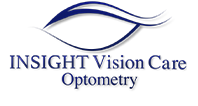Eye exams are more than just a checkup for your vision—they’re also a crucial window into your overall health. Did you know that an eye doctor can identify the early signs of chronic diseases like diabetes, high blood pressure, and even brain conditions, all through a simple eye exam?
Many of us overlook the importance of regular eye exams, but these exams are a vital part of preventive healthcare. Some conditions that can be detected in an eye exam include:
- Diabetes
- Hypertension
- Glaucoma
- Macular Degeneration
- High Cholesterol
- Autoimmune Diseases
- Brain Conditions
What Eye Exams Can Say About Your Overall Health
Your eyes are more than windows to your soul—they’re also full of tiny blood vessels, nerves, and tissues that can reflect what’s happening in other parts of your body. When an optometrist examines your retina, optic nerve, or blood vessels, they can detect abnormalities that signal systemic diseases.
In fact, your eye provides a unique opportunity for doctors to observe blood vessels and nerves up close without invasive procedures. This is why eye exams can reveal clues about your overall health long before symptoms of illness appear elsewhere.
Common Symptoms Eye Doctors Look For
During an eye exam, professionals look for specific indicators such as:
- Swelling
- Abnormal blood vessels
- Bleeding in the retina
- Changes in your optic nerve
These findings, in turn, can point to underlying health conditions.
Health Conditions That Can Be Detected in an Eye Exam
Eye exams can detect eye diseases and refractive errors, but that’s not all. Eye exams can also be used to diagnose major health conditions like diabetes and even brain tumors!
1. Diabetes
Diabetes is not only a leading cause of blindness in adults, but also one of the most common conditions identified during an eye exam. More specifically, eye doctors can identify diabetic retinopathy, a condition where high blood sugar levels damage the tiny blood vessels in the retina.
Signs of diabetes include:
- Blurry vision
- Swelling in the retina
- Tiny blood clots or leaks in the vessels
If caught early, doctors can work with you to manage your diabetes and prevent further complications like vision loss or even blindness. If you’re at a high risk for or have diabetes you may want to consider a diabetic eye exam. In these exams, optometrists will use additional testing to make sure diabetes isn’t damaging your vision.
2. High Blood Pressure (Hypertension)
Your eye doctor can often detect high blood pressure (hypertension) during a routine exam. Signs such as bleeding or narrowing of the blood vessels in the eye can indicate elevated blood pressure levels.
Hypertension-related eye issues, such as hypertensive retinopathy, reflect how excessive blood pressure puts stress on arteries and veins throughout the body—making early detection critical for preventing heart disease or stroke.
3. Glaucoma
Glaucoma develops without noticeable symptoms in its early stages. Optometrists can identify structural damage to the optic nerve from glaucoma during an eye pressure test or visual field assessment.
Early detection through an eye exam is crucial, as glaucoma can cause permanent vision loss if untreated. Fortunately, early intervention via medication or surgery can reduce the risk of further damage.
4. Macular Degeneration
Age-related macular degeneration (AMD) is a leading cause of vision loss, especially in those over age 50. An eye exam can detect early signs of AMD, such as protein deposits under the retina or abnormal blood vessels.
5. High Cholesterol
Perhaps surprisingly, eye exams can reveal elevated cholesterol levels. One potential clue is the presence of yellow or white deposits, known as “plaque,” in the blood vessels of the retina.
Another visible symptom might be a gray or white ring around the cornea, called arcus senilis, commonly linked to high cholesterol. Identifying these signs early could help prevent future cardiovascular issues.
6. Autoimmune Diseases
Certain autoimmune diseases, such as lupus or multiple sclerosis (MS), may manifest in the eyes. For instance, inflammation in the eye can indicate autoimmune activity, while optic neuritis (inflammation affecting the optic nerve) is often an early symptom of MS.
Recognizing these signs during an eye exam allows for timely referral to specialists and proactive disease management.
7. Brain Conditions
Some neurological conditions, like strokes and brain tumors, can be detected by changes in your vision or optic nerve. For example:
- Sudden vision loss may signal a stroke.
- Swelling in the optic nerve (papilledema) could indicate increased brain pressure, potentially caused by a tumor or brain injury.
Early detection of these signs during an eye exam can lead to life-saving treatments.
Why Regular Eye Exams Matter

Eye exams aren’t just about correcting blurry vision—they’re an integral part of preventative healthcare. Here’s why you should never skip your annual exam:
- Early Detection: Many health issues reveal subtle changes in the eyes before symptoms show elsewhere in the body.
- Cost-Effective Prevention: Early intervention can reduce medical costs associated with complications of chronic diseases.
- Personalized Health Tracking: Staying consistent with eye exams helps track changes in your health over time.
What to Expect During a Comprehensive Eye Exam
During a complete eye exam, you can expect your eye doctor to use various tools and tests to examine your eye health. Some common tests used in eye exams include:
- Pupillary Dilation: Allows for a thorough view of the retina.
- Optical Coherence Tomography (OCT): Captures cross-sectional images of the retina to assess nerve and tissue health.
- Fundoscopy: Provides a close-up view of the optic nerve and blood vessels.
- Tonometry: Measures inner eye pressure to detect glaucoma.
Start Your Eye Health Journey
Conditions like diabetes, hypertension, high cholesterol, and even neurologic disorders may leave their first clues in your eyes. All it takes is one routine exam to identify them and take proactive steps toward management or treatment.
At Insight Vision Care, we’ve been part of the Walnut Creek community for over 40 years. That’s part of why we’re invested in the health of you and your family’s eyes. Book an appointment with us today to schedule an eye exam and keep your visual future looking bright!



